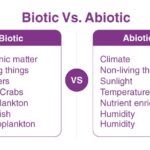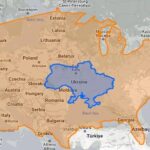Are you fascinated by how different countries are governed? Do you want to understand the intricacies of political systems beyond the borders of the United States? If so, Advanced Placement (AP) Comparative Government and Politics could be the perfect course for you. While AP United States Government and Politics offers an in-depth look at the American political landscape, AP Comparative Government and Politics broadens your horizons to explore diverse political frameworks across the globe. Both courses provide valuable insights into the world of political science, but they cater to different interests and learning objectives.
Unpacking AP Comparative Government and Politics: A World of Political Systems
AP Comparative Government and Politics offers a unique opportunity to delve into the political institutions and processes of six diverse countries: China, Iran, Mexico, Nigeria, Russia, and the United Kingdom. This course moves beyond a single-nation focus to provide a comparative lens through which you can analyze how different countries grapple with similar political challenges. You will explore a range of critical aspects within each nation’s political system:
- Political Systems and Regimes: Examine the fundamental structures of government, including democracies, authoritarian regimes, and hybrid systems. You’ll learn to classify and compare these systems based on their characteristics and functions.
- Political Institutions: Investigate the roles and interactions of key institutions such as legislatures, executives, judiciaries, and bureaucracies in each country. Understand how these institutions shape policy and governance.
- Political Culture and Participation: Analyze the values, beliefs, and attitudes of citizens towards their political systems. Explore different forms of political participation, including voting behavior, social movements, and citizen activism.
- Economic and Social Development: Understand the interplay between political and economic factors. Analyze how economic policies and social changes influence political stability and development in different countries.
- Electoral Systems and Party Systems: Compare different electoral systems and their impact on political representation and party competition. Analyze the dynamics of party systems and their role in shaping government and policy.
- Civil Society and Citizen Organizations: Explore the role of non-governmental organizations, interest groups, and civil society in influencing political processes and holding governments accountable.
Through this comparative approach, you’ll gain a deeper understanding of the complexities of global politics and the diverse ways in which societies organize themselves politically. The course emphasizes critical thinking, analytical skills, and the ability to draw connections between political concepts and real-world scenarios.
AP United States Government and Politics: A National Focus
In contrast, AP United States Government and Politics provides a comprehensive examination of the political system within the United States. This course focuses on the foundations of American democracy, the structure and function of the U.S. government, and the dynamics of political behavior within the nation. Key areas of study include:
- Constitutional Principles: Explore the foundational documents of American democracy, including the Constitution and the Bill of Rights. Analyze the principles of separation of powers, checks and balances, and federalism.
- Branches of Government: Examine the powers and responsibilities of the legislative, executive, and judicial branches of the U.S. government. Understand how these branches interact and influence policy-making.
- Political Parties and Interest Groups: Analyze the role of political parties, interest groups, and the media in shaping public opinion and influencing government decisions.
- Civil Liberties and Civil Rights: Study the protection of individual freedoms and rights in the U.S. context. Examine landmark Supreme Court cases and ongoing debates related to civil liberties and civil rights.
- Political Participation and Behavior: Explore different forms of political participation in the U.S., including voting, elections, and political movements. Analyze factors that influence political attitudes and behavior.
While AP United States Government and Politics provides essential knowledge about the American political system, AP Comparative Government and Politics broadens your perspective to encompass a global understanding of diverse political landscapes.
Similarities Between AP United States and AP Comparative Government and Politics
Despite their different geographical focuses, both AP courses share fundamental similarities in their approach to studying government and politics. Both courses will equip you with valuable skills and knowledge applicable to the broader field of political science and beyond. In both AP United States Government and Politics and AP Comparative Government and Politics, you will learn to:
- Apply Political Concepts: Connect abstract political concepts to real-world events and situations, enhancing your understanding of how political theories play out in practice.
- Analyze Data and Evidence: Develop analytical skills by interpreting data, identifying patterns and trends, and drawing evidence-based conclusions about political phenomena.
- Construct Arguments and Support Claims: Learn to formulate clear and concise arguments, develop strong thesis statements, and support your claims with relevant evidence in essays and discussions.
- Understand Citizen-Government Interaction: Both courses emphasize the crucial relationship between citizens and their government, exploring how citizens participate in and influence political processes.
These shared skills are highly transferable and valuable for academic pursuits in social sciences, humanities, and professional careers requiring critical thinking, analytical reasoning, and effective communication.
Key Differences: Scope and Focus
The most significant difference between the two courses lies in their scope. AP United States Government and Politics concentrates exclusively on the United States, providing an in-depth analysis of its political system. Conversely, AP Comparative Government and Politics takes a global approach, examining and comparing the political systems of multiple countries across different regions of the world.
This difference in scope leads to distinct learning experiences. In AP United States Government and Politics, you will develop a deep understanding of the intricacies of American government and politics. In AP Comparative Government and Politics, you will cultivate a broader, more comparative understanding of the diverse ways in which political systems operate globally.
If you have a strong interest in international relations, global issues, or understanding different cultures and societies, AP Comparative Government and Politics is an excellent choice. If your primary interest lies in American politics and civic engagement within the United States, then AP United States Government and Politics might be a more direct fit.
Career Paths and College Majors
Studying government and politics, whether through AP United States Government and Politics or AP Comparative Government and Politics, can pave the way for a wide array of exciting college majors and career paths. These courses provide a solid foundation for fields such as:
- Political Science: A natural progression for students interested in in-depth study of political systems, theories, and behavior.
- International Relations: Ideal for those passionate about global politics, diplomacy, and international organizations.
- Public Policy: Focuses on the analysis and development of government policies to address societal challenges.
- Public Administration: Prepares individuals for careers in government agencies and public service.
- Law (Pre-law): Provides a strong understanding of government, law, and policy, beneficial for aspiring lawyers.
- Journalism and Media: Develops critical thinking and analytical skills valuable for reporting on political and social issues.
- Education: Prepares students to teach civics, government, and social studies at various levels.
- Non-profit Sector: Provides a foundation for working in advocacy, human rights, and international development.
To explore specific major and career options related to each course, you can visit the College Board websites for AP United States Government and Politics and AP Comparative Government and Politics.
Choosing the Right AP Government and Politics Course
Ultimately, the best choice between AP United States Government and Politics and AP Comparative Government and Politics depends on your individual interests and academic goals. If you are eager to gain a global perspective on political systems and explore diverse cultures, AP Comparative Government and Politics offers a fascinating and enriching learning experience. If you are primarily focused on American government and politics, then AP United States Government and Politics will provide a more targeted and in-depth study.
Consider talking to your school counselor to learn more about the availability of these courses at your school and to discuss which course aligns best with your academic path and interests. Both courses offer valuable opportunities to deepen your understanding of the world and develop critical skills for future success.

